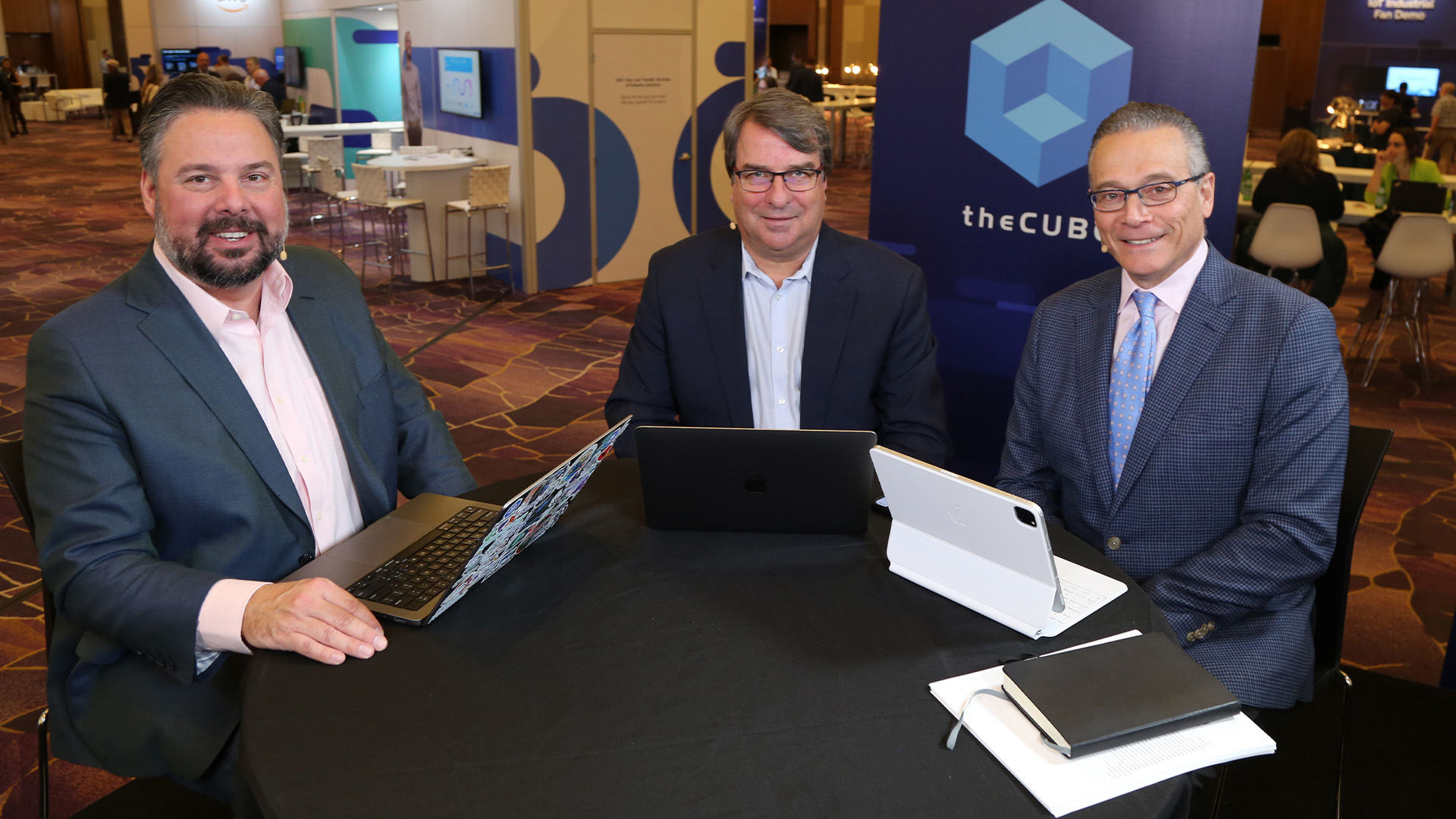 AI
AI
 AI
AI
 AI
AI
Groundbreaking advancements in generative artificial intelligence and data science promise to transform enterprise operations and decision-making processes.
TheCUBE Research analysts are on the ground at SAS Innovate in Las Vegas to assess how new AI-driven models and partnerships are set to revolutionize the interface between data management and customer interaction across various sectors.
“Generative AI … gives [SAS] a new opportunity to essentially go to the next level on the interface side and leverage the data with their customers,” said John Furrier (pictured, center), executive analyst of theCUBE Research.
TheCUBE’s coverage of this week’s conference offers an in-depth exploration of how gen AI and advanced data handling are set to revolutionize various industries. As companies worldwide strive to harness the power of AI, the insights shared during the event will be indicative of the future trajectory of enterprise technology.
Furrier talked with theCUBE Research’s Dave Vellante (right), chief analyst, and Rob Strechay (left), principal analyst, at SAS Innovate, during an exclusive broadcast on theCUBE, SiliconANGLE Media’s livestreaming studio. They discussed the transformative impact that advanced AI tools are bringing to the table, making it possible for businesses to navigate and utilize their data more effectively than ever before, and how SAS Institute Inc. is helping to transform the industry. (* Disclosure below.)

At SAS Innovate 2024, theCUBE Research analysts discuss the transformative impact of advanced AI tools and how SAS Institute is helping to transform the industry.
The integration of AI into business operations is becoming increasingly sophisticated. SAS has been at the forefront of this integration, evolving from its roots in analytics to incorporating cutting-edge AI functionalities across its offerings, according to theCUBE analysts. This has opened new avenues for companies to enhance their operations and customer interactions.
“It’s consistently solving the quality problems,” Furrier said. “What we see with stored prompts is that directional power law, specialty models — that we published over a year ago — coming to fruition, and the value’s going to be in using other things (stored prompts, other modules) to make the data better so that the ultimate decision and the response, whether it’s reasoning or an outcome, is key.”
The analysts discussed the implications of these technological advancements in the context of SAS’ product development, highlighting the shift from traditional data management to more dynamic, AI-driven models that can significantly boost productivity and decision-making capabilities.
“What Brian Harris [SAS CTO] was saying … if you can map questions into multiple stored, governed answers, we can give you not only better answers, we can give you better questions to get to better answers,” Vellante said.
Leveraging AI for industry-specific solutions, such as fraud detection, showcases SAS’ commitment to integrating AI across various verticals, according to Furrier. This approach not only demonstrates SAS’ versatility, but also underscores its strategic focus on enhancing industry-specific outcomes through advanced AI models.
“The big news is that they’re introducing SAS models,” Furrier said. “SAS has tons of industry verticals, such as fraud detection … across all the industries.”
Essentially, SAS will be selling “Lego blocks of models” that can be applied across different scenarios and industries, Furrier explained. This modular approach allows organizations to adapt and integrate SAS’ solutions into their existing systems with greater ease, facilitating a smoother transition into AI-driven operations.
Ultimately, the enterprise will see an AI-enhanced future, where data is not just collected, but intelligently harnessed to drive decisions, innovate and transform industries, according to theCUBE analysts.
“We’ve been seeing on theCUBE that the data science world is shrinking in terms of core people,” Furrier said. “You don’t have to be a data scientist. You don’t have to be in the game with generative AI; you can be a user. And the democratization way that’s coming in … is very clear.”
Here’s the complete video interview, part of SiliconANGLE’s and theCUBE Research’s coverage of SAS Innovate:
(* Disclosure: TheCUBE is a paid media partner for SAS Innovate. No sponsors have editorial control over content on theCUBE or SiliconANGLE.)
Support our mission to keep content open and free by engaging with theCUBE community. Join theCUBE’s Alumni Trust Network, where technology leaders connect, share intelligence and create opportunities.
Founded by tech visionaries John Furrier and Dave Vellante, SiliconANGLE Media has built a dynamic ecosystem of industry-leading digital media brands that reach 15+ million elite tech professionals. Our new proprietary theCUBE AI Video Cloud is breaking ground in audience interaction, leveraging theCUBEai.com neural network to help technology companies make data-driven decisions and stay at the forefront of industry conversations.